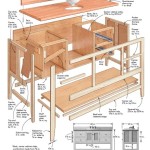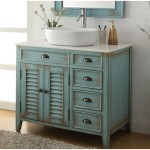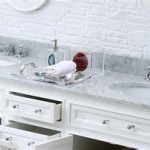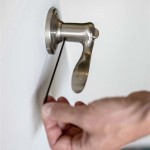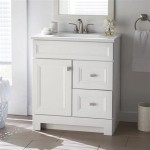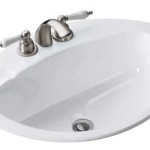How Much Does It Cost To Remodel A Bathroom In NJ, USA?
Remodeling a bathroom in New Jersey can significantly enhance a property's value, improve functionality, and create a more comfortable living space. However, understanding the costs associated with such a project is crucial for effective budgeting and realistic expectations. Bathroom remodeling expenses in NJ can vary significantly based on several factors, making it essential to conduct thorough research and planning.
The total cost of a bathroom remodel in New Jersey can range from a few thousand dollars for a basic cosmetic update to upwards of tens of thousands for a high-end, complete overhaul. This variability stems from the scope of the project, the quality of materials used, labor costs, and the complexity of any structural or plumbing modifications required. A minor remodel might involve replacing fixtures like the toilet, sink, and faucet, while a major remodel could include relocating plumbing, changing the layout, and installing new flooring and tile work.
This article aims to provide a comprehensive overview of the key factors influencing bathroom remodeling costs in New Jersey, offering insights into the various expenses involved and providing a framework for developing a realistic budget.
Key Cost Factors in NJ Bathroom Remodels
Several key factors contribute to the overall cost of a bathroom remodeling project in New Jersey. These factors need careful consideration during the planning phase to avoid unexpected expenses and ensure the project stays within budget.
1. Scope of the Remodel: The extent of the remodel is a primary determinant of the total cost. A cosmetic remodel, involving simple replacements and surface updates, will generally be less expensive than a gut renovation. A gut renovation often entails removing everything down to the studs, reconfiguring the layout, and installing all new fixtures and finishes. This type of project naturally demands more labor, materials, and time, leading to higher overall costs.
For instance, a cosmetic remodel might only include replacing the vanity, repainting the walls, and installing a new mirror. The existing plumbing and electrical systems remain untouched, minimizing the need for specialized contractors. In contrast, a full-scale remodel could involve relocating the toilet, adding a new shower or bathtub, and updating the electrical wiring to accommodate new lighting fixtures. These changes require the expertise of plumbers and electricians, adding significantly to the labor expenses.
2. Materials and Fixtures: The quality and type of materials and fixtures chosen for the bathroom remodel have a substantial impact on the overall cost. Options range from budget-friendly to high-end, designer brands. Choosing higher-quality materials typically results in increased durability and longevity, though they also come with a higher price tag.
For example, flooring options include vinyl, tile, stone, and wood. Vinyl is generally the most affordable, while stone and high-end tile can be significantly more expensive. Similarly, countertops can range from laminate to quartz, granite, or marble, each with varying costs and aesthetic appeal. Fixtures such as toilets, sinks, and bathtubs also come in a wide range of prices depending on brand, features, and materials.
Furthermore, specialized features like heated floors, custom shower enclosures, or smart home technology can substantially increase the material costs. Selecting energy-efficient fixtures and water-saving appliances might have a higher initial cost but can lead to long-term savings on utility bills.
3. Labor Costs: Labor costs represent a significant portion of the total bathroom remodeling budget in New Jersey. These costs encompass the fees for various professionals, including plumbers, electricians, carpenters, tile installers, and general contractors. Labor rates can vary depending on the contractor's experience, reputation, and location within the state.
Engaging a general contractor to oversee the entire project can simplify the process but also adds to the overall cost. A general contractor is responsible for coordinating the various tradespeople, managing the project timeline, and ensuring that all work is completed to code. Alternatively, a homeowner can act as their own general contractor, coordinating the various tradespeople. However, this requires significant time and organizational skills.
Plumbing and electrical work require licensed professionals due to the potential safety hazards and code compliance issues. These tradespeople typically charge hourly rates or a fixed fee per project. Tile installation and carpentry work also contribute to the labor costs, depending on the complexity of the design and the materials used.
Estimating Remodeling Costs in New Jersey
Estimating the costs associated with a bathroom remodel requires a detailed assessment of the project's scope, the materials and fixtures to be used, and the labor required. The following provides a breakdown of potential cost ranges for different aspects of a bathroom remodel in New Jersey.
1. Demolition and Removal: This initial phase of the remodel involves removing existing fixtures, flooring, and wall coverings. The cost for demolition and removal can range from $500 to $1,500, depending on the size of the bathroom and the amount of material that needs to be removed. If asbestos or lead is present, additional costs will be incurred for hazardous material removal.
2. Plumbing: Plumbing work includes relocating pipes, installing new fixtures, and ensuring proper drainage. Plumbing costs typically range from $500 to $5,000 or more, depending on the complexity of the work. Relocating a toilet or shower, for example, requires significant plumbing modifications and will increase the cost.
3. Electrical: Electrical work involves updating wiring, installing new outlets, and adding new lighting fixtures. Electrical costs can range from $500 to $3,000 or more, depending on the extent of the work. Adding recessed lighting, installing a new exhaust fan, or upgrading the electrical panel can contribute to higher costs.
4. Flooring: Flooring costs vary depending on the type of material chosen and the size of the bathroom. Vinyl flooring can cost $2 to $5 per square foot, while tile can range from $5 to $20 per square foot or more. Stone flooring, such as marble or granite, is typically the most expensive option.
5. Walls and Tile: Wall repairs and the installation of tile can significantly impact the overall cost. Drywall repairs can range from $200 to $500, while tile installation can cost $5 to $15 per square foot or more, depending on the type of tile and the complexity of the design.
6. Fixtures: Fixture costs vary widely depending on the brand, style, and features. A basic toilet can cost $100 to $300, while a high-end toilet with advanced features can cost $500 to $1,000 or more. Sinks can range from $50 to $500 or more, depending on the material and design. Bathtubs and showers can range from $300 to several thousand dollars, depending on the size, shape, and features.
7. Vanities and Countertops: Vanities can range from $200 to $2,000 or more, depending on the size, material, and style. Countertops can range from $10 to $100 per square foot or more, depending on the material. Laminate countertops are the most affordable, while quartz, granite, and marble countertops are more expensive.
8. Lighting and Ventilation: Lighting fixtures can range from $50 to $500 or more per fixture, depending on the style and features. Exhaust fans can range from $50 to $200 or more, depending on the size and features.
Strategies for Managing Bathroom Remodeling Costs
While bathroom remodeling projects can be expensive, there are several strategies homeowners can employ to manage costs and stay within budget. Careful planning, strategic material selection, and diligent contractor selection can all contribute to a more affordable and successful remodel.
1. Prioritize Needs vs. Wants: Distinguishing between essential needs and desired wants is a crucial step in managing costs. Focus on addressing functional issues first, such as replacing a leaky toilet or improving ventilation. Luxuries like heated floors or high-end fixtures can be considered if the budget allows.
2. Maintain the Existing Layout: Relocating plumbing and electrical systems can significantly increase costs. Maintaining the existing bathroom layout minimizes the need for these modifications, helping to keep the project within budget. Minor cosmetic changes can often achieve a significant visual impact without incurring major expenses.
3. Shop Around for Materials: Compare prices from different suppliers to find the best deals on materials and fixtures. Consider purchasing materials during sales or clearance events. Online retailers can often offer competitive pricing compared to local stores. Look for closeout deals on tile or remnants on stone to save money on material purchases.
4. Obtain Multiple Quotes: Obtain quotes from several contractors to compare prices and services. Ensure that each quote includes a detailed breakdown of the work to be performed and the materials to be used. Comparing multiple bids allows homeowners to identify the most competitive pricing and the credentials of contractors offering quotes.
5. Consider DIY Work: Homeowners with some DIY experience can save money by performing certain tasks themselves, such as painting, demolition, or simple fixture replacements. However, it's essential to leave plumbing and electrical work to licensed professionals to ensure safety and compliance with building codes.
6. Plan for Contingencies: Unexpected issues can arise during a bathroom remodel, so it's essential to set aside a contingency fund to cover these costs. A general recommendation is to allocate 10% to 15% of the total budget for unforeseen expenses like finding hidden plumbing damage or needing to remediate mold.
7. Explore Financing Options: Consider exploring different financing options, such as home equity loans, personal loans, or credit cards, to help cover the costs of the remodel. Comparing the interest rates and terms of different loans is advisable to identify the most affordable option.
By carefully considering these factors and implementing these strategies, homeowners can effectively manage the costs of a bathroom remodel in New Jersey and transform their bathrooms into comfortable and functional spaces without breaking the bank. Thorough planning and realistic expectations are key to a successful and affordable project.

Bathroom Remodeling Costs In New Jersey 2024 Sweeten Com

Bathroom Remodeling Costs In New Jersey 2024 Sweeten Com

House Renovation Costs In New Jersey 2024 Sweeten

Bathroom Remodeling Costs In New Jersey 2024 Sweeten Com

How Much Does A Bathroom Remodel Cost 2024 Data Angi

This Is How Much It Costs To Remodel Bathrooms In New Jersey

How Much Does A Bathroom Remodel Cost In New Jersey 2024

Bathroom Remodeling Costs 2024 Sweeten

Bathroom Remodel Contractors In Nj Garden State Renovations

Bathroom Remodeling In New Jersey Jmc
Related Posts

